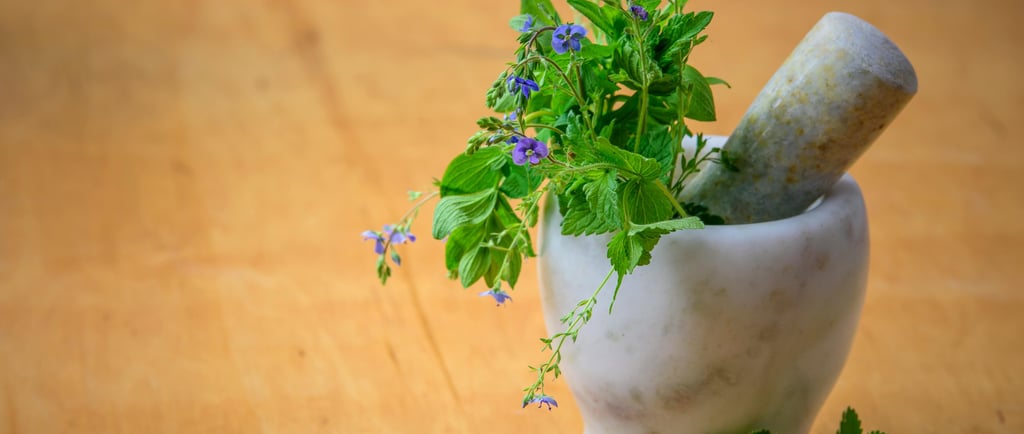Natural Antibiotics: Garlic, Honey, and More
MEDICAL & FIRST AID


Why Natural Remedies Matter in Survival
Infections are among the greatest threats in survival. A small cut can turn dangerous quickly when no hospitals or pharmaceuticals are available. While modern antibiotics are the gold standard, nature offers its own defenses. Garlic, honey, and certain plants contain antibacterial properties that help the body fight infection when nothing else is available.
Garlic as a Natural Weapon
Garlic has been used for centuries as a healing food. It contains allicin, a compound that fights bacteria, fungi, and even some viruses. In survival, garlic cloves can be crushed and applied directly to wounds in small amounts or eaten raw to boost the immune system. While it burns on open cuts, its potency makes it one of the strongest natural antibiotics available almost anywhere.
The Healing Power of Honey
Raw honey is another natural remedy with remarkable antibacterial properties. It creates a protective barrier over wounds, keeping moisture balanced while preventing bacterial growth. Honey also draws fluid out of tissues, reducing swelling. In survival, a thin layer of honey spread on a wound before bandaging slows infection and speeds healing. Unlike garlic, it is gentle and soothing, making it useful even for burns.
Plantain Leaves and Their Juice
Plantain, a common weed found across fields and roadsides, offers both soothing and antibacterial effects. Crushed leaves can be pressed onto cuts, insect bites, or sores to reduce pain and prevent infection. The juice works as a mild antiseptic rinse. Since plantain grows in many regions, it is one of the easiest natural medicines to find when supplies are gone.
Onion and Other Alliums
Onions, like garlic, contain sulfur compounds that fight bacteria. A slice of onion pressed against a wound may help reduce infection risk, though its effect is weaker than garlic. Other members of the allium family, such as leeks and chives, carry similar though milder properties. When garlic is scarce, onions are a practical alternative.
Aloe Vera for Skin Healing
Aloe vera is best known for soothing burns, but it also has mild antibacterial and antifungal effects. The clear gel inside the leaves can be applied directly to skin injuries, rashes, or insect bites. While it does not replace stronger remedies, it prevents irritation and supports faster healing. In arid climates where aloe grows naturally, it is one of the most useful survival plants.
Pine Resin and Tree Medicines
Trees offer valuable survival antibiotics. Pine resin, sticky and aromatic, can be applied to small wounds to prevent infection. It forms a natural seal that keeps out dirt and bacteria. Birch bark tea has mild antibacterial properties, and oak bark contains tannins that fight germs. These tree-based remedies are especially useful in forests where supplies are otherwise limited.
Preparing Natural Antibiotics Safely
The method of preparation affects effectiveness. Garlic is best crushed fresh, since allicin forms when cloves are broken. Honey should be raw and unheated, as processed versions lose potency. Plant leaves should be washed before use, or at least rinsed in clean water. When making teas or rinses, boil water first to ensure purity before soaking the plants.
Internal Use Versus External Use
Some natural antibiotics work internally as well as externally. Garlic, onion, and certain teas can be eaten or drunk to support the immune system. Honey provides both external wound care and internal energy. Others, like pine resin, are best used only externally. Understanding which are safe to consume prevents new problems from arising.
Limits of Natural Remedies
It is important to understand that natural antibiotics are not as powerful as modern medicine. They help prevent infection and support healing, but they may not cure severe systemic infections. In survival, their value lies in reducing risk and buying time until proper medical help is available. Using them early and consistently makes them far more effective.
Nature’s Medicine Cabinet
Survival often means working with what you have, and nature provides a surprising amount of support. Garlic, honey, aloe, plantain, and resins may seem humble, but they carry real healing power. By learning to identify and prepare these natural antibiotics, you give yourself and others a chance to resist infection even when cut off from modern resources. In survival, that chance can mean the difference between life and death.